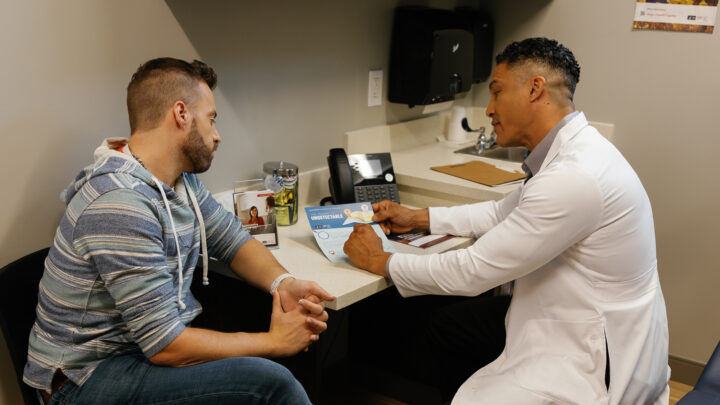
Americans are at a 30-year low for sexual activity—26% of Americans ages 18 and up didn’t have sex once over the past 12 months, according to the 2021 General Social Survey. While this seems to be a trend that was growing before Covid hit, the pandemic may have exacerbated the situation.
According to UMASS Amherst, “How the pandemic has affected couples’ relationships depends on the internal and external stresses they’re facing, as well as their individual vulnerabilities, says Paula Pietromonaco, professor emerita of psychological and brain sciences.
‘There’s huge variability in couples’ experiences,’ says Pietromonaco, who in a theoretical paper published in American Psychologist applied relationship science to predict which couples’ relationships would likely face the greatest hardships from COVID-19. ‘People already struggling before the pandemic are going to be hit harder.’
Pandemic stresses may undermine couples’ relationship quality by increasing harmful processes such as hostility and withdrawal. Pietromonaco points out that different strategies for different groups of couples are needed to alleviate the disruption the pandemic has caused…”
CNN reports that the decline of sex, and how fewer people are living together and getting married:
Last year’s survey was also the first time that the percentage of Americans who had sex once a month or less topped 50%. In 1989, 35% of American adults had sex once a month or less.
Some of this has to do with fewer people getting married and an aging population, but that doesn’t explain all of it. Among married couples under the age of 60, 26% had sex once a month or less in 2021. In 1989, it was 12%…
It’s not just about sex. Some 62% of Americans ages 25 to 54 lived with a partner or were married, according to a 2021 Pew Research Center study of 2019 US Census Bureau data. This included 53% who were married and 9% who were cohabitating. That’s well below the 71% of couples who lived together in 1990, with 67% married and 4% cohabitating…
You might think the growing share of unmarried people living without a spouse is due to rising educational levels among women who don’t need the financial support of a man. The statistics tell a different story, though. Better educated people and higher wage earners are the most likely to live with a partner or be married. A lot of people won’t get married if they don’t think it’s financially feasible, according to Pew polling.
There’s also been a higher increase in unmarried men living alone (10 points) than women (7 points) compared to the 1990 baseline…
If there is one thing good about declining marriage and partner rates, it’s that it seems people are less likely to run headlong into a marriage that has a high probability of failing.
The rate of divorces and annulments was at its lowest level this century in 2019, according to the CDC/NCHS National Vital Statistics System. There were 2.7 divorces and annulments per 1,000 people in the population. That’s down from 4 per 1,000 in the year 2000.”
In a recent poll of global Sermo physicians, 78% said they saw a decline in people getting married; and 55% said their patients revealed a decrease in sexual intimacy.
84% of Sermo physicians believe the pandemic has caused problems for romantic relationships. And 47% said the pandemic has caused problems in their own personal relationships.
Below, Sermo physicians from around the world share their professional insights, perspectives, and opinions on this important topic—in their own words:
“Younger people have an important reason not to get married or have children: the world instability OVERALL. Financial, and climate changes are the main reasons, as they tell me.”
Internal Medicine, Mexico
“The pandemic has caused a decrease in both marriages and relationships due to compliance with the Anti-Covid 19 measures recommended by experts, and that limit interpersonal relationships, such as staying home.”
Pediatrics, Venezuela
“Although it is true that individuality can be good for some personal projects, it is also true that a life as a couple is more pleasant, it allows you not only to think of yourself but also of others, and sex as a couple improves our mood.”
Ophthalmology, Cuba
“Economic and mental stability is very important and decisive to be able to jump to this step, without this a greater commitment such as marriage is very unlikely regardless of who works or earns more money.”
General Practitioner, Venezuela
Everyday thousands of Sermo member physicians from diverse backgrounds and experiences exchange knowledge with each other. Sermo is the original medical social network that empowers today’s physicians. Over 1 million fully verified physicians across more than 150 countries come to our platform to talk with peers, participate in paid medical studies, solve challenging patient cases, contribute to the world’s largest database of drug ratings – and enjoy a few laughs along the way.
Interested in more? Check back any time and follow us on Facebook, Twitter, and LinkedIn for the latest and greatest in physician insights.
Are you a physician or healthcare practitioner?
Explore the many benefits of joining Sermo’s medical community and sign up for free today.














